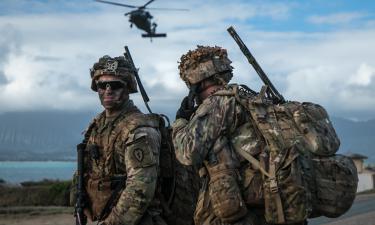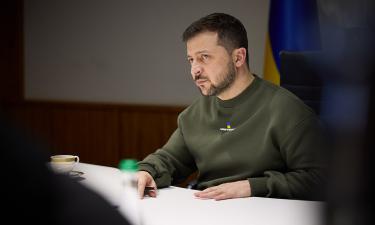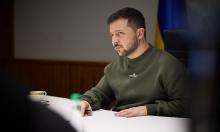Election Commission remakes the Duma
 On Tuesday, the RF Central Election Commission published suggestions on changes to the election law. The Commission thinks the law disagrees with the spirit of the times. What are the changes the Commission supposes to introduce?
On Tuesday, the RF Central Election Commission published suggestions on changes to the election law. The Commission thinks the law disagrees with the spirit of the times. What are the changes the Commission supposes to introduce?
First of all, the changes will concern election of one-seat constituency deputies. Election Commission Chairman Alexander Veshnyakov thinks this will “stimulate political parties for more active work in Russia’s regions”. The Commission will also make irresponsible party members fulfill their duties. In particular, the law will stipulate that deputies are obliged to work in their regions between sessions of the parliament. Otherwise deputies may be unseated.
The Election Commission does not like when independent deputies change one party for another as soon as they come to the Duma. In the future, it is supposed to deprive deputies of their authorities in court in case they abandon their parties for some other party. In its turn, a party may be deprived of a mandate as well if an elected deputy will not accept the mandate for no reason whatever. A deputy may turn down a mandate in case of a grave disease. Some deputies turn down party mandates with the purpose of keeping governor positions (like Moscow Mayor Yury Luzhkov, Mentimer Shaimiyev from Tatarstan and others), which the Commission thinks a wrong way to do as well.
Another amendment to the law suggests that the whole of a Duma faction must be deprived of the mandates in case its deputies dodge work at the Duma for no reason whatever. This will put an end to demarches of opposition factions. If the amendment is adopted neither the Communist Party faction nor others will be able to leave Duma sessions to voice a protest. Otherwise, they may be deprived of their mandates.
One more innovation suggested by the Election Commission says that any citizen above 21 and having the right to be a candidate may propose any party to include him into its electoral roll. It may be possible even for non-party men. Alexander Veshnyakov says that this initiative must be considered at a conference of regional departments of a party if at least ten members of the party support it.
Today, there are four parties in the Duma, but there may be even less parties in the parliament of the next convocation. According to Veshnyakov, the Central Election Commission does not object to maintaining of a 7 per cent barrier for entering the Duma on condition that there will be at least four political parties in the parliament. A new method for mandate distribution is also to be introduced. Depending upon the votes a party wins at elections, mandates are to be first of all given to three leaders from the party’s federal list and then to leaders from those regions where the party wins a majority. Veshnyakov adds that a party may not get a mandate if in some region majority of the electorate votes against all candidates and the party thus gets less votes, however this is still under discussion he says.
Alexander Veshnyakov thinks the institution of election blocks must no longer exist because of the negative experience of forming blocks in regions and on the federal level. Substantial amendments must be introduced to the legal status of blocks to let them exist, warns Veshnyakov. He is going to discuss the issue with deputies at the nearest parliamentary session.
Last week, Rodina leader Dmitry Rogozin strictly criticized election blocks. He said only political parties must be allowed to participate in elections. “The electorate must know for what candidates he votes and be aware of programs they put forward,” Rogozin thinks. During the 2004 elections to legislative assemblies in the Russian Federation subjects there were 6 blocks named Rodina, but none of them was related to the Rodina that took part in the 2003 parliamentary election. In the future, Rogozin thinks, other parties and even United Russia may face the problem as well. “Political wheeler-dealers must be prohibited to use popular names of politicians to form fictitious election blocks and mislead the electorate,” the Rodina leader says.
Right after a parliamentary session, the above-mentioned innovations will be submitted to the Presidential Administration Law Department. Alexander Veshnyakov expects that President Putin will submit the document as a legislative initiative to the Duma in November. The parliament is highly likely to push it through three readings successfully to have new election legislation in 2005.
Subscribe to Pravda.Ru Telegram channel, Facebook, RSS!





